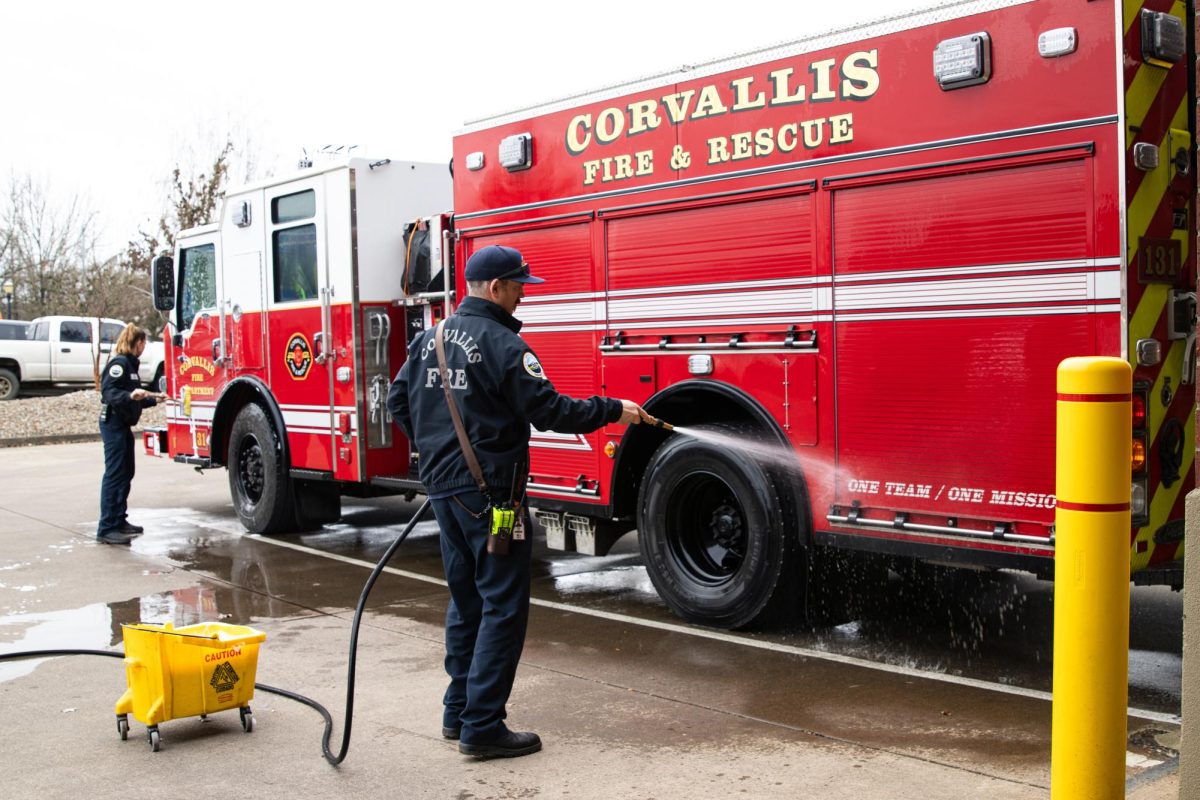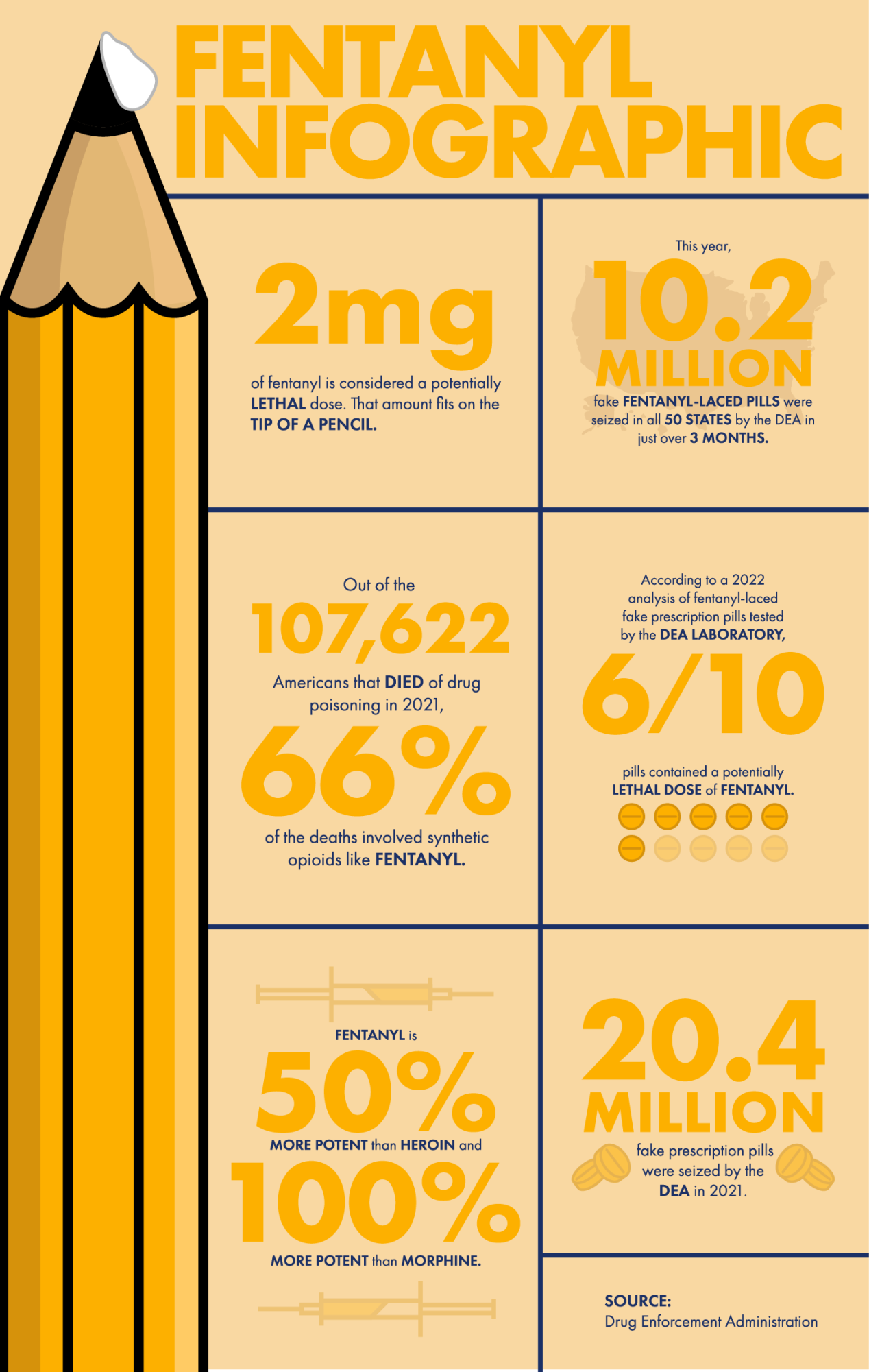An Oregon law going into effect in 2024 will require schools educate children in the dangers of certain drugs, particularly fentanyl, and the laws associated with these drugs.
Many aspects of the bill — SB 238 — are still being developed, like what age group will be taught the material and what exactly the material will look like, according to Melissa Harder, Assistant Superintendent of the Corvallis School District.
“Oregon Health Authority, the State Board of Education (Oregon Department of Education), and the Alcohol and Drug Policy Commission will collaborate to develop curricula supplements,” Harder said.
Fentanyl is a synthetic opioid approved by the Food and Drug Administration to treat severe pain, especially after surgery, according to the CDC. Fentanyl use has been rapidly increasing over the last couple of decades, due to it being illegally distributed and laced in other drug products.
Illicit fentanyl is commonly found in fake pills sold as OxyContin, Xanax and Adderall, according to the Benton County Health Department. It can also be found in powders, like methamphetamine, heroin and cocaine.
Its use is rapidly increasing due to a number of factors; it’s cheap to produce, highly addictive and 50 times stronger than heroin and 100 times stronger than morphine, according to Texas Health and Human Services.

There is no smell or taste to the drug, making it extremely hard to detect. A small dose can result in a deadly overdose. Anything over 50 micrograms, or about .05 milligrams, poses a modest risk of overdose to the consumer, according to Harm Reduction Ohio.
According to the Centers for Disease Control and Prevention, over 150 people die every day in the United States from synthetic opioids, including fentanyl.
Due to the rapid exposure to fentanyl, the Oregon SB238 bill has been created to educate younger generations on this increasingly popular drug. Currently, the CSD has seen no cases of students engaging in fentanyl use, according to Harder. However, school grounds are still equipped with safety measures in case of an incident happening.
“Our district currently has Narcan available in all of our schools as part of the (defibrillator) cabinet,” Harder said. “Each building has at least one staff member trained in its administration.”
Naloxone, commonly known as Narcan, is an opioid overdose reversal medication and has been approved by the FDA since 1971, according to the Massachusetts Department of Public Health. As of March 29, Narcan can be obtained as over-the-counter medication, as it once was only available from a pharmacist, according to an FDA press release.
According to the Benton County Health Department, Narcan can be administered by injection or as a nasal spray, blocking the effects of opiates on the brain and restoring breathing.
If the bill is passed, this along with other relevant information about fentanyl will be taught in schools. CSD staff will be trained on how to teach fentanyl education, with guidance from the Oregon Department of Education.
“Our district nursing staff highly supports any education and processes that increase awareness of the dangers of drugs and supports student health and wellness,” Harder said.
Besides the nursing staff, the teaching staff couldn’t be reached due to timing, as the end of the school year approaches.


















































































![Newspaper clipping from February 25, 1970 in the Daily Barometer showing an article written by Bob Allen, past Barometer Editor. This article was written to spotlight both the student body’s lack of participation with student government at the time in conjunction with their class representatives response. [It’s important to note ASOSU was not structured identically to today’s standards, likely having a president on behalf of each class work together as one entity as opposed to one president representing all classes.]](https://dailybaro.orangemedianetwork.com/wp-content/uploads/2025/03/Screenshot-2025-03-12-1.00.42-PM-e1741811160853.png)



























